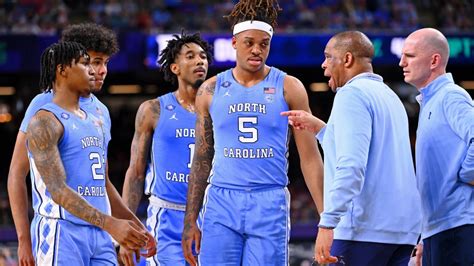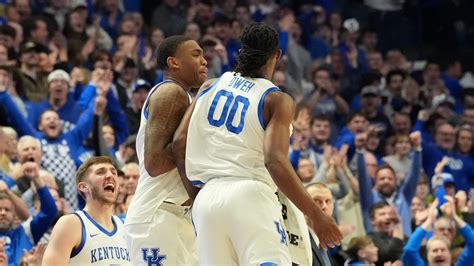Determining “who is the best basketball player” has been a topic of debate among fans and analysts for decades, with no definitive answer. While various statistical measures, accolades, and subjective opinions are considered when evaluating players, there is no universally accepted metric for determining the “best.”
The question of the best basketball player is significant because it reflects the competitive nature of the sport and the immense talent and skill showcased by elite athletes. Identifying and ranking the best players allows fans to appreciate the extraordinary abilities of these individuals and recognize their contributions to the game.
Ultimately, the debate over “who is the best basketball player” is a matter of personal preference and often influenced by factors such as playing style, team success, and individual achievements. While statistical analysis can provide valuable insights, subjective factors and personal bias also play a role in shaping opinions.
Who is the Best Basketball Player?
Determining the “best” basketball player is a multifaceted task involving various key aspects:
- Skill: Exceptional ball-handling, shooting, passing, and defensive abilities.
- Statistics: Quantifiable measures of performance, such as points, rebounds, and assists.
- Accolades: Individual awards and recognition, including MVPs, scoring titles, and All-Star selections.
- Leadership: Ability to inspire and guide teammates, both on and off the court.
- Impact: Influence on the game’s outcome, both in terms of individual and team success.
- Consistency: Maintaining a high level of performance over an extended period.
- Versatility: Ability to play multiple positions and contribute in various ways.
- Durability: Staying healthy and available to play throughout the season.
- Legacy: Lasting impact on the sport, including inspiring future generations.
- Intangibles: Factors that cannot be easily quantified, such as work ethic, determination, and passion.
These aspects are interconnected and contribute to a player’s overall greatness. For instance, Michael Jordan’s exceptional skill, leadership, and impact made him one of the most dominant players in NBA history. LeBron James’s versatility, durability, and consistency have allowed him to maintain an elite level of play for nearly two decades. Ultimately, the question of “who is the best basketball player” remains subjective, but understanding these key aspects provides a framework for evaluating and comparing players.
Skill
Exceptional ball-handling, shooting, passing, and defensive abilities are fundamental components that define the best basketball players. These skills enable players to execute plays effectively, create scoring opportunities, and prevent opponents from scoring. Ball-handling allows players to control the ball and make quick moves, creating space for themselves or teammates. Shooting accuracy is crucial for scoring points and maintaining offensive efficiency. Passing skills facilitate teamwork and create scoring opportunities for others. Defensive abilities, such as rebounding, blocking, and stealing, are vital for preventing the opposing team from scoring and gaining possession of the ball.
Players with exceptional skills in these areas can significantly impact the outcome of games. For example, skilled ball-handlers like Kyrie Irving and Chris Paul can break down defenses and create scoring chances for themselves and others. Elite shooters like Stephen Curry and Klay Thompson can stretch the defense and open up the court. Excellent passers like LeBron James and Nikola Jokic can orchestrate offenses and make their teammates better. Defensive stalwarts like Giannis Antetokounmpo and Rudy Gobert can alter shots, disrupt passing lanes, and protect the rim.
Understanding the connection between exceptional skills and being the best basketball player is crucial for several reasons. First, it highlights the importance of developing and honing these skills at a high level to achieve greatness in basketball. Second, it allows fans and analysts to evaluate players more effectively, recognizing the impact of these skills on individual and team performance. Third, it helps coaches and organizations identify and recruit players with the potential to become elite performers.
Statistics
Statistics play a crucial role in evaluating “who is the best basketball player” by providing quantifiable measures of individual performance. Points, rebounds, and assists are among the most commonly used statistics to assess a player’s contribution to their team’s success.
- Scoring: Points scored reflect a player’s ability to put the ball in the basket consistently. High-scoring players can carry their teams offensively and create scoring opportunities for themselves and others.
- Rebounding: Rebounds measure a player’s ability to secure possession of the ball after a missed shot. Rebounding is vital for controlling the tempo of the game and creating second-chance scoring opportunities.
- Assists: Assists represent a player’s ability to create scoring chances for teammates. High-assist players can make their teammates better and orchestrate an efficient offense.
While statistics provide valuable insights into a player’s performance, they should not be the sole determinant of who is the best. Other factors, such as leadership, defense, and intangibles, also contribute to a player’s overall impact on the game. However, statistics remain an essential tool for evaluating and comparing players, particularly when assessing their offensive production and efficiency.
Accolades
Accolades, such as MVP awards, scoring titles, and All-Star selections, serve as tangible recognition of a player’s outstanding performance and impact on the game. These accolades are often viewed as indicators of individual greatness and are considered when determining “who is the best basketball player.”
MVP (Most Valuable Player) awards are given to the player deemed most impactful to their team’s success during the regular season. Scoring titles are awarded to the player with the highest total points scored. All-Star selections represent the best players voted by fans, coaches, and media to participate in the annual All-Star Game.
Accolades hold significance because they showcase a player’s ability to perform at an elite level consistently. MVP awards, in particular, highlight a player’s all-around impact on their team, considering their statistical contributions, leadership, and overall value to the team’s success.
While accolades are not the sole determinant of who is the best basketball player, they provide valuable insights into a player’s individual performance and recognition by experts and fans alike. By examining a player’s accolades, we can gain a better understanding of their skills, consistency, and overall impact on the game.
Leadership
Leadership is a multifaceted quality that plays a crucial role in determining “who is the best basketball player.” Effective leaders possess the ability to motivate, inspire, and guide their teammates, both on and off the court. They set a positive example through their work ethic, dedication, and commitment to the team’s goals.
- Leading by Example: Great leaders lead by example, demonstrating the values and behaviors they expect from their teammates. They are often the first to arrive at practice, the last to leave, and are willing to put in the extra work to improve their skills.
- Communicating Effectively: Effective leaders communicate clearly and concisely, ensuring that their teammates understand their roles and responsibilities. They are able to motivate and inspire their teammates, even in challenging situations.
- Building Relationships: Great leaders build strong relationships with their teammates, creating a sense of trust and camaraderie. They are able to connect with players on a personal level, understanding their strengths and weaknesses.
- Decision-Making: Leaders are often required to make quick and decisive decisions, both on and off the court. They must be able to assess situations, consider the available options, and make choices that benefit the team.
Leadership is essential for team success in basketball. It fosters a positive team culture, promotes unity, and allows players to reach their full potential. Great leaders inspire their teammates to play harder, work together, and strive for excellence. By examining a player’s leadership qualities, we gain a deeper understanding of their ability to impact the game and contribute to their team’s overall success.
Impact
Assessing a player’s impact on the game’s outcome is crucial when determining “who is the best basketball player.” Impact encompasses both individual and team success, highlighting the ability to make a significant difference in the outcome of games and contribute to the team’s overall achievements.
- Individual Impact: Individual impact refers to a player’s ability to influence the game through their own performance and contributions. This includes scoring points, rebounding, assisting teammates, and making defensive plays. Players with high individual impact can single-handedly carry their teams to victory, especially in.
- Team Impact: Team impact measures a player’s ability to make their teammates better and contribute to the overall success of the team. This includes setting up teammates for scoring opportunities, providing leadership and motivation, and playing within the team’s system. Players with high team impact make their teammates more effective and elevate the team’s performance.
The impact a player has on the game can be quantified through various statistical measures, such as player efficiency rating (PER) and win shares. However, it is also important to consider qualitative factors, such as a player’s leadership, intangibles, and ability to perform under pressure. By examining a player’s impact on both an individual and team level, we gain a better understanding of their overall value and contribution to the game of basketball.
Consistency
In the realm of basketball, consistency is a hallmark of greatness, closely intertwined with the question of “who is the best basketball player.” Maintaining a high level of performance over an extended period is a testament to a player’s dedication, skill, and mental fortitude.
Players who display consistency are able to perform at an elite level game after game, season after season. They are reliable and dependable, providing a steady source of production for their teams. Consistency allows players to establish themselves as cornerstones of their franchises and become leaders on and off the court.
Consider LeBron James, widely regarded as one of the greatest basketball players of all time. Throughout his illustrious career, James has maintained an incredibly high level of performance. He has averaged over 25 points per game for 19 consecutive seasons, a remarkable feat that speaks to his exceptional consistency. James’s unwavering performance has been instrumental in his team’s success, leading them to multiple NBA championships.
Understanding the connection between consistency and being the best basketball player is crucial for several reasons. First, it highlights the importance of longevity and durability in the sport. Players who can sustain their peak performance over many years are more likely to achieve sustained success and recognition as the best.
Second, consistency allows players to build a strong foundation for their teams. Coaches and teammates can rely on consistent players to deliver solid performances night after night, which is essential for team chemistry and success.
Finally, consistency serves as a barometer of a player’s mental toughness and resilience. Maintaining a high level of performance over an extended period requires the ability to overcome adversity, stay focused, and perform under pressure. Consistent players are often the ones who rise to the occasion in big games and lead their teams to victory.
Versatility
Versatility is a highly sought-after trait in basketball, often considered when determining “who is the best basketball player.” Players who possess versatility bring a unique dimension to their teams, capable of adapting to different roles and contributing in multiple ways.
- Offensive Versatility: Offensively versatile players can score from various spots on the court and create scoring opportunities for themselves and others. They can handle the ball well, shoot from different ranges, and make smart decisions in the pick-and-roll.
- Defensive Versatility: Defensively versatile players can guard multiple positions effectively. They have the footwork to stay in front of quicker guards, the strength to battle with bigger post players, and the instincts to anticipate passing lanes and make steals.
- Positional Versatility: Positionally versatile players can play multiple positions seamlessly. They may start at one position but are comfortable playing others when needed. This versatility allows teams to adjust their lineups and strategies based on matchups and game situations.
Versatility is crucial for team success in basketball. It provides coaches with more flexibility and allows them to adjust their game plans based on the strengths and weaknesses of their opponents. Versatile players can fill in for injured teammates, match up against different player types, and create mismatches that can be exploited offensively and defensively. By examining a player’s versatility, we gain a deeper understanding of their value and ability to impact the game in various ways.
Durability
Durability is an essential component of determining “who is the best basketball player.” Staying healthy and available to play throughout the season is crucial for several reasons.
First, durability ensures consistency. Players who are consistently on the court can contribute to their teams on a nightly basis. They can build rhythm, develop chemistry with their teammates, and make a significant impact on the team’s success. Conversely, players who are frequently injured or miss games due to nagging ailments can disrupt the team’s flow and make it difficult to maintain a high level of play.
Second, durability allows players to maximize their potential. When players are healthy, they can focus on developing their skills and improving their game. They can participate in practices, scrimmages, and film sessions without worrying about injuries. This leads to steady improvement and allows players to reach their full potential.
Third, durability is a sign of toughness and dedication. Players who can withstand the physical demands of a long NBA season and avoid major injuries demonstrate a high level of mental and physical toughness. They are willing to put in the extra work to take care of their bodies and prepare themselves for the rigors of the game.
Examples of durable players who have achieved great success include LeBron James, Stephen Curry, and Giannis Antetokounmpo. These players have consistently played at a high level throughout their careers and have been instrumental in their teams’ success. They have avoided major injuries and have been able to maintain their peak performance for extended periods.
Understanding the connection between durability and being the best basketball player is crucial for evaluating players and building successful teams. By prioritizing durability, teams can increase their chances of winning and contending for championships.
Legacy
A player’s legacy extends beyond their playing career and statistics; it encompasses the lasting impact they have on the sport and future generations. This involves inspiring young athletes, influencing the evolution of the game, and leaving a positive mark on the basketball community. When considering “who is the best basketball player,” legacy plays a significant role.
Players with exceptional legacies have demonstrated a commitment to excellence, both on and off the court. They serve as role models for aspiring athletes, showcasing the values of hard work, dedication, and sportsmanship. Their iconic moments, signature moves, and philanthropic efforts leave an enduring impression on fans and the game itself.
Consider Michael Jordan, widely regarded as one of the greatest basketball players of all time. His legacy extends far beyond his six NBA championships and numerous individual accolades. Jordan inspired a generation of players with his relentless pursuit of greatness and his signature style of play. His impact on the sport is evident in the countless athletes who have emulated his moves, and the global popularity of basketball that he helped foster.
The legacy of a player is not solely defined by their individual accomplishments, but also by their contributions to the sport’s growth and development. Players who have pushed the boundaries of the game, introduced new techniques, or advocated for social change leave a lasting legacy that shapes the future of basketball.
Ultimately, a player’s legacy is a testament to their character, impact, and enduring influence on the sport. When evaluating “who is the best basketball player,” considering a player’s legacy provides a deeper understanding of their greatness and the mark they have left on the game.
Intangibles
When evaluating “who is the best basketball player,” intangibles play a crucial role that often transcends quantifiable statistics. Intangibles encompass a player’s work ethic, determination, leadership, and passion for the game, which significantly impact their overall performance and contribution to the team.
Work ethic refers to a player’s willingness to put in extra effort beyond what is required. Players with a strong work ethic are often the first to arrive at practice and the last to leave, constantly seeking ways to improve their skills and knowledge of the game. Determination is the ability to persevere through challenges and setbacks. Determined players never give up, even when faced with adversity, and they always strive to achieve their goals.
Leadership is the ability to inspire and motivate teammates, both on and off the court. Leaders set a positive example through their actions and words, and they can rally their team together to achieve common goals. Passion is the intense love and enthusiasm for basketball. Passionate players play with heart and soul, and their passion is contagious, often elevating the performance of their teammates.
Consider the example of Michael Jordan, widely regarded as one of the greatest basketball players of all time. Jordan’s relentless work ethic, determination, and passion were instrumental in his success. He spent countless hours practicing and honing his skills, and he never shied away from challenges. Jordan’s leadership and passion inspired his teammates to play at their best, and he was always willing to go the extra mile to win.
Intangibles are essential for sustained success in basketball. Players with strong intangibles can overcome physical limitations, adapt to different playing styles, and perform under pressure. They are the glue that holds a team together and often make the difference between winning and losing.
In conclusion, when determining “who is the best basketball player,” intangibles such as work ethic, determination, leadership, and passion are just as important as quantifiable statistics. These intangibles shape a player’s character, impact their performance, and contribute to their legacy in the sport.
FAQs on “Who is the Best Basketball Player”
The question of “who is the best basketball player” has been debated for decades, with no definitive answer. Here are some frequently asked questions about this topic:
Question 1:Who is widely considered the greatest basketball player of all time?
Answer: Michael Jordan is often regarded as the greatest basketball player of all time due to his exceptional skills, leadership, and impact on the sport.Question 2:How do you measure the greatness of a basketball player?
Answer: Greatness in basketball is multifaceted and can be evaluated based on a combination of factors, including skill, statistics, accolades, leadership, impact, consistency, versatility, durability, legacy, and intangibles.Question 3:Is it possible to objectively determine who the best basketball player is?
Answer: Determining the best basketball player is inherently subjective, as there is no single metric that can definitively rank players. Different criteria and preferences can lead to varying opinions on who holds the title.Question 4:What are some of the key skills that define a great basketball player?
Answer: Exceptional ball-handling, shooting, passing, and defensive abilities are fundamental skills that distinguish great basketball players.Question 5:How does leadership impact a player’s greatness?
Answer: Leadership is crucial for team success, as it involves inspiring, motivating, and guiding teammates both on and off the court. Great leaders set a positive example, communicate effectively, build relationships, and make sound decisions.Question 6:Why is consistency important in determining a player’s greatness?
Answer: Consistency reflects a player’s ability to maintain a high level of performance over an extended period. It allows players to establish themselves as reliable contributors, build a strong foundation for their teams, and overcome adversity.
In summary, determining the best basketball player is a complex and subjective matter that involves considering various factors, including individual skill, team impact, and intangible qualities. While there is no definitive answer, the debate and discussion surrounding this topic continue to fuel the passion and excitement of basketball fans worldwide.
Transition to the next article section: “Exploring the Evolution of Basketball: From Humble Beginnings to a Global Phenomenon”
Tips to Determine “Who is the Best Basketball Player”
Evaluating “who is the best basketball player” requires a comprehensive approach that considers various factors beyond individual statistics. Here are some tips to aid in this assessment:
Tip 1: Examine Skill and Versatility
Assess a player’s proficiency in core skills such as ball-handling, shooting, passing, and defense. Consider their ability to play multiple positions and adapt to different roles.
Tip 2: Analyze Statistics and Accolades
Review statistical data, including points, rebounds, assists, and efficiency ratings. Examine individual and team accolades, such as MVP awards, scoring titles, and All-Star selections, to gauge a player’s impact.
Tip 3: Evaluate Leadership and Impact
Assess a player’s ability to lead and inspire teammates. Consider their influence on the team’s overall performance, both offensively and defensively.
Tip 4: Consider Consistency and Durability
Examine a player’s ability to maintain a high level of play over multiple seasons. Evaluate their durability and injury history to assess their availability and longevity.
Tip 5: Examine Intangibles and Legacy
Consider a player’s work ethic, determination, passion, and overall impact on the sport. Evaluate their influence on the game’s evolution and their lasting legacy.
Summary:
Determining “who is the best basketball player” is a subjective matter, but these tips provide a framework for evaluating players based on a range of important factors. By considering skill, statistics, leadership, consistency, intangibles, and legacy, we can gain a deeper understanding of the qualities that define the greatest players in the game.
Conclusion
The question of “who is the best basketball player” has no definitive answer, as it is a matter of personal opinion and subjective criteria. However, by examining key factors such as skill, statistics, leadership, consistency, intangibles, and legacy, we can gain a deeper understanding of the qualities that define the greatest players in the game.
Ultimately, the debate over who is the best basketball player is a celebration of the sport’s rich history and the extraordinary talents of its athletes. It is a testament to the passion, dedication, and excellence that make basketball one of the most captivating and beloved sports in the world.





